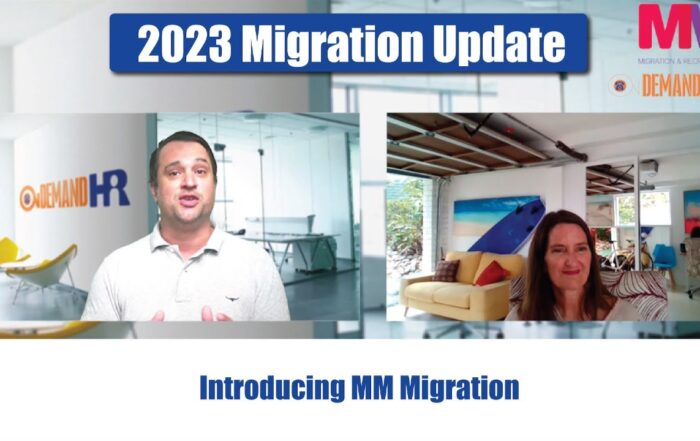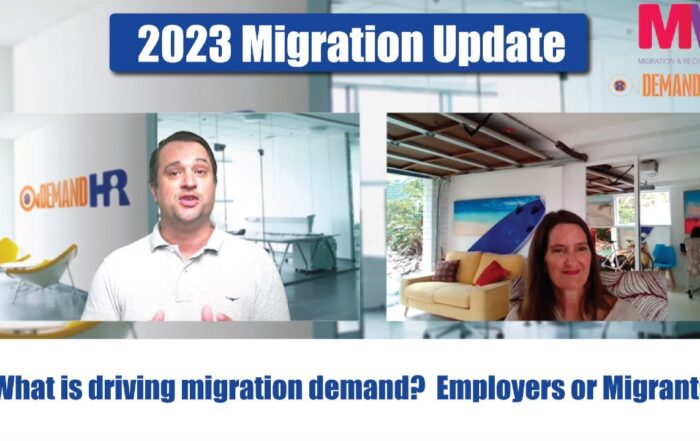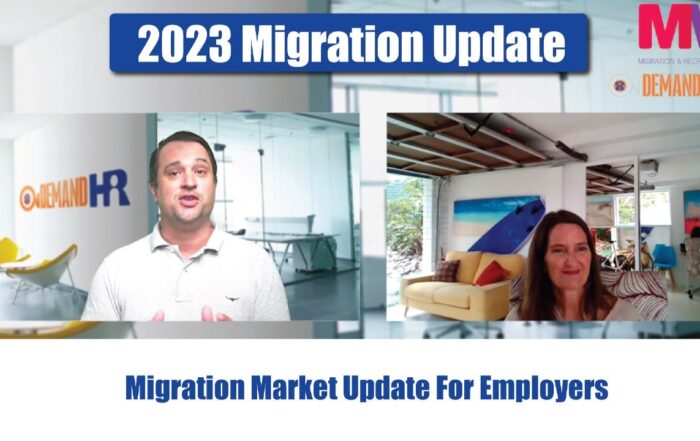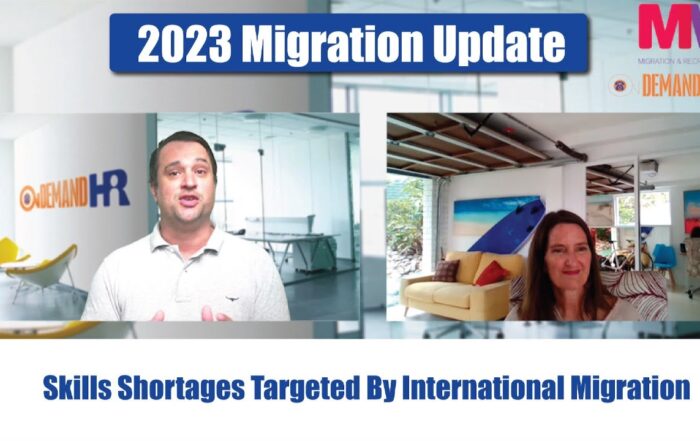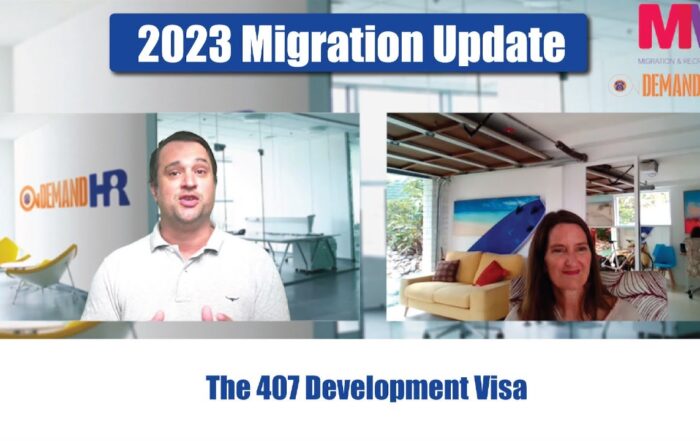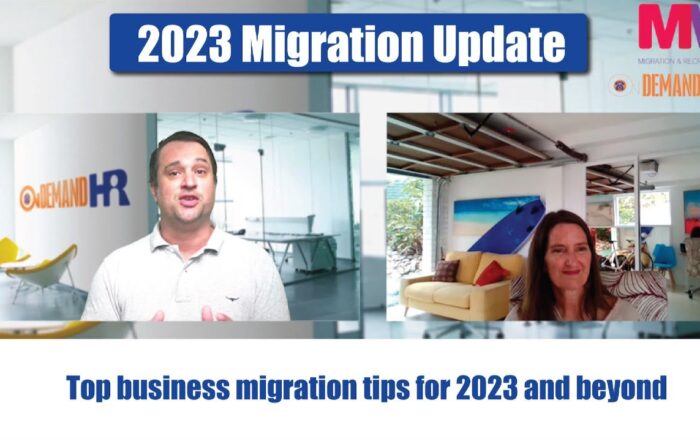Rapid Antigen Testing In Workplaces
Many businesses are now investigating rapid antigen testing as part of their reponse to the Covid-19 Pandemic particularly NSW businesses with employees that live in LGA’s of concern. We reached out to Altius Group to offer some insights into what is involved and some practical considerations.
Please see below for a transcript of this video.
Share the HR or workplace relations challenge facing your business and one of our experienced consultants will be in touch within 24 hours with a strategic action plan or discover the best strategy yourself by accessing out free online training library.
Transcript
0:00
But, Matt, I was really curious, we’re having a conversation before we come online around your experience about employers asking questions about implementing rapid antigen testing in the workplace. And I think it’d be really valuable for some of our clients and our audience. To get a bit of an understanding of what that actually involves and some of the challenges you’ve you’ve experienced there.
0:25
Great question, Andrew. And I’m still working through the answers ourself, to be honest. So in terms of rapid antigen testing, what this is, is an onsite, essentially an onsite COVID test assessment that employers will be able to implement to their staff with results that become available within 15 minutes. With all that said, a shorter test typically means lower reliability, lower confidence, we need to be careful that these tests may produce false positive readings. And so we just need to make sure that employers are very well equipped in their processes around repeat testing, and the controls that go into that and how to respond. For employers in New South Wales, with employees coming out of the 12 LGA’s is of concern or particular industries. The New South Wales Government has mandated that these tests are required for people who are not already vaccinated. So by the time this has aired, companies are required to be putting this testing in place. Now, it’s not just as easy as going out getting the test kits and putting out practice it, putting it into practice. These tests at this stage are required to be overseen by an allied health professional or helping a qualified health professional. So there’s a list of qualifications that can actually oversee and administer these tests, you actually need to engage someone with those qualifications to either to even order and get approval to obtain these types of tests. And we’re just working through with our clients at the moment, because I’ve had a significant spike of inquiries this week. And try to work through how do we best support them with that, it’s making sure that the right policies are in place. The systems have been well thought through about all of the outcomes, making sure that we can get our hands on high quality tests, and also supervised as well.
2:44
Just on that Matt, the great question, Andrew, to give Matt, on that front. What would a typical I mean, do you have on at this point, maybe is even too early to tell? But do you have any sense of how long a typical rapid antigen testing process would take on a site on particular day? Let’s say we’ve got a manufacturing site, there’s 10 or 15 employees who need to be subject to this rapid antigen testing? Do we have any understanding or even just rough understanding of how long something like that would take presumably first thing in the morning, I would imagine?
3:16
Yeah, so at this stage our understanding is the test itself will take approximately two minutes to administer. And there’s a 15 minute wait time for the results.
3:27
And would multiple, will they be administering kind of multiple tests at once waiting for test results? Is that sort of philosophy?
3:34
That’s what we’re working towards. So again, it’s how big is the space? because we need to adhere to social distancing. How many people can we get trained to administer these assessments? So when we’re looking at the size of the operation, and having a consistent flow of people being able to come through, it’s going to present its challenges.
4:00
From a, from a costing perspective for a businesses that looking at or looking to implement rapid antigen testing, is it a presumably a call out or some sort of fixed fee for the staff member plus a cost per test or something along those lines?
4:20
Yeah, we’re, again, we’re working through that today. It’s what I’ve been working through last night and in all areas and when they have different needs in terms of operating and opening times we’re trying to work out what’s the best way for Altius Group to support people? Is it that we can get on site? Is it that we can train their people is it that we can be available through remote supervision? We’re looking into those guidelines Plus at this stage we’re looking at having an implementation package which is around getting all of the policies, procedures, systems and appropriate training in place. There will then be a supervision cost depending on what that looks like in terms of how many Altius group employees need to be physically involved in that testing process. And then there’s a test per unit price as well, for the consumables, essentially. So it we don’t have figures at this stage. Again, it’s all coming together. But there are going to be a few elements to that cost and process and program. But unfortunately, as per the government requirements, there’s not gonna be too many other choices at this stage.
5:33
You need a reasonably sized business in order to even practically consider implementing something like this?
5:42
Certainly been some of the early criticism that has come out that this type of program it’s great it’s another layer of defense of of keeping people safe. The fact that we can now get COVID assessments within 15 minutes is pretty amazing when you think about where we were 12 months ago. However, for me that the practicalities of this being implemented across multiple employers of different sizes. The small businesses I just can’t see getting an opportunity for this. One, through getting access to the appropriate health professionals to deliver such a service for a small group of employees, but the cost of actually having the consumables the allied health on site. We understand a lot of small businesses and medium businesses are under pressure and strain at the moment, let alone to add this to a daily expense to open their doors.

